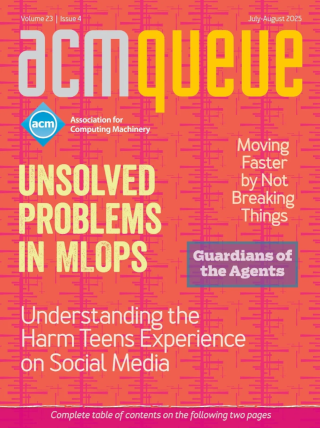
File-system Litter:
Cleaning up your storage space quickly and efficiently
Dear KV, We recently ran out of storage space on a very large file server and upon closer inspection we found that it was just one employee who had used it all up. The space was taken up almost exclusively by small files that were the result of running some data-analysis scripts. These files were completely unnecessary after they had been read once. The code that generated the files had no good way of cleaning them up once they had been created; it just went on believing that storage was infinite. Now we’ve had to put quotas on our file servers and, of course, deal with weekly cries for more disk space. Surely there is a better way of dealing with this problem than clamping down on everyone for fear that one of them will do the wrong thing.
The Pain of Implementing LINQ Providers:
It’s no easy task for NoSQL
I remember sitting on the edge of my seat watching the 2005 PDC (Professional Developers Conference) videos that first showed LINQ (Language Integrated Query). I wanted LINQ: it offered just about everything that I could hope for to make working with data easy. The impetus for building queries into the language is quite simple; it is something that is used all the time; and the promise of a unified querying model is good enough, even before you add all the language goodies that were dropped on us. Being able to write in C# and have the database magically understand what I am doing? Awesome! Getting compilation errors from Visual Studio, rather than runtime errors at testing (or worse, production)? Wonderful! Getting rid of most SQL injection issues? Amazing!
The Most Expensive One-byte Mistake:
Did Ken, Dennis, and Brian choose wrong with NUL-terminated text strings?
IT both drives and implements the modern Western-style economy. Thus, we regularly see headlines about staggeringly large amounts of money connected with IT mistakes. Which IT or CS decision has resulted in the most expensive mistake?
Arrogance in Business Planning:
Technology business plans that assume no competition (ever)
In the Internet addressing and naming market there’s a lot of competition, margins are thin, and the premiums on good planning and good execution are nowhere higher. To survive, investors and entrepreneurs have to be bold. Some entrepreneurs, however, go beyond "bold" and enter the territory of "arrogant" by making the wild assumption that they will have no competitors if they create a new and profitable niche. So it is with those who would unilaterally supplant or redraw the existing Internet resource governance or allocation systems. Because alternative DNS (Domain Name System) roots provide such a well-proved and well-understood example of this kind of arrogance, this article begins with a short slog through that swamp before discussing the more current and topical matter of alternative numbering Whois.



